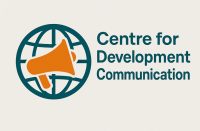My baseline research explored how cultural and religious pluralism in North-Central Nigeria can be strengthened through participatory communication approaches. Field evidence from Benue and Plateau States demonstrates that when communities actively participate in dialogue and decision-making on issues affecting them, peaceful coexistence is more achievable—despite differences in cultural identities, belief systems, and religious practices.
In practice, cultural and religious pluralism refers to the peaceful coexistence of diverse cultural identities, belief systems, and religious practices within the same society, underpinned by mutual respect, recognition, and inclusion. It transcends mere diversity, advancing towards the active acceptance and accommodation of differences in ways that enable communities to live together harmoniously while preserving their distinct identities.
North-Central Nigeria continues to grapple with the realities of cultural and religious pluralism. The region is home to multiple ethnic nationalities and is characterised by the presence of Christianity, Islam, and indigenous religions—each seeking space for expression in a complex socio-political landscape.
Using Bokkos (Plateau State) and Apa (Benue State) as case studies, I adopted a qualitative approach involving 34 participants: 22 in Focus Group Discussions (FGDs) and 12 in Key Informant Interviews (KIIs)—11 FGD and 6 KII participants from each community. This research revealed how participatory communication approaches have strengthened cultural and religious pluralism in the studied communities.
In Bokkos, the majority (87%) attributed the continued existence of cultural and religious pluralism to the inclusive participation of all faiths and ethnic groups in discussions and the development of homegrown solutions to issues affecting their socio-economic and religious lives. Participants emphasised that participatory communication not only fosters pluralism but also serves as a robust mechanism for conflict resolution.
Furthermore, 73% of Bokkos respondents linked the effectiveness of participatory communication to its ability to build trust, empower communities, and promote learning and dialogue—leading to a deeper understanding of complex issues. However, 45% expressed concern that political interference has weakened these processes. They observed that community dialogues, once sincere and inclusive, are now at risk of being manipulated by political actors pursuing personal interests rather than community well-being.
In Apa, 78% of participants attributed the restoration of peace in the area to participatory communication led by religious, traditional, and other influential figures. They described how the revival of traditional, community-led dialogue—especially in addressing the farmer–herder conflict—helped neutralise dangerous religious and ethnic narratives. Collaborative efforts by local interfaith groups, community leaders, NGOs, and government actors restored a sense of cultural and religious pluralism that had been under threat.
Several respondents in Apa also noted that communities in Benue State have sustained indigenous participatory platforms where residents jointly address pressing issues and co-create solutions—systems that have historically promoted tolerance and coexistence. However, they warned that political actors have often undermined these structures for short-term gains.
As one participant observed:
“All communities in Benue State have established participatory indigenous systems where members discuss how to live and interact in ways that promote religious and ethnic tolerance, resulting in peaceful coexistence. But politicians have destroyed these local structures for political considerations.”
Overall, communities identified participatory communication as a critical tool for strengthening cultural and religious pluralism but warned that both state actors and politicians must refrain from dismantling indigenous platforms that have long promoted tolerance.
Policy Recommendations:
1. Safeguard Indigenous Structures: Federal, state, and local governments should protect community-based dialogue systems from political interference.
2. Ensure Genuine Participation: Interventions by government agencies, interfaith groups, and NGOs must involve sincere participatory communication, avoiding top-down or externally imposed solutions.
3. Community Co-creation: Solutions must be co-created with local communities to ensure ownership, sustainability, and cultural relevance.
4. Depoliticise Dialogue Processes: Mechanisms should be put in place to prevent the hijacking of participatory platforms by political interests.
By embedding genuine participatory communication into development and peacebuilding initiatives, North-Central Nigeria can strengthen its cultural and religious pluralism, creating resilient communities capable of navigating diversity without conflict.
Audu Liberty Oseni, Director- Centre for Development Communication
